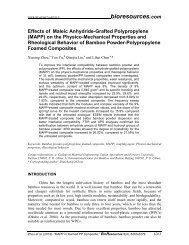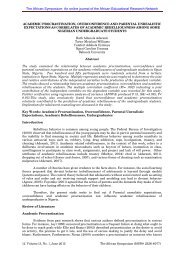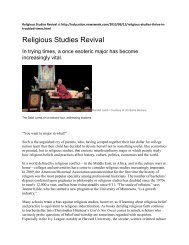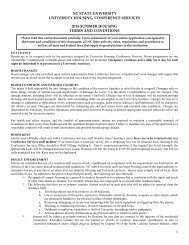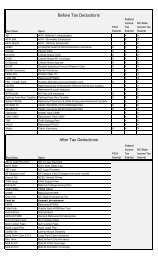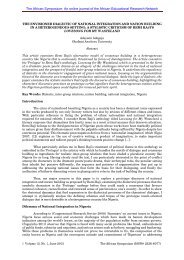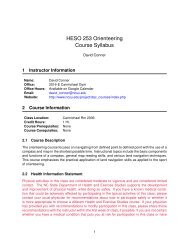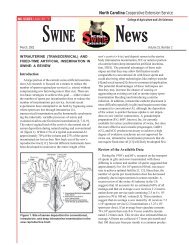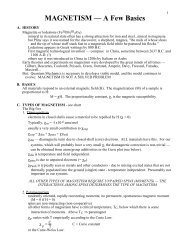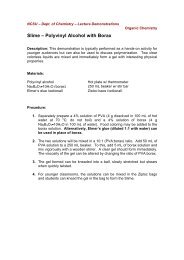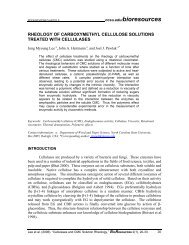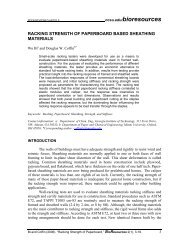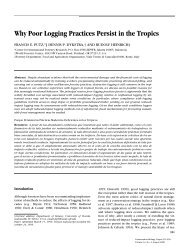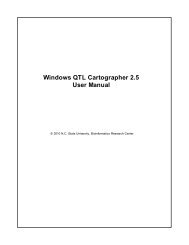Dictators, Songwriters, and the Negotiation of Censorship
Dictators, Songwriters, and the Negotiation of Censorship
Dictators, Songwriters, and the Negotiation of Censorship
You also want an ePaper? Increase the reach of your titles
YUMPU automatically turns print PDFs into web optimized ePapers that Google loves.
Starmakers: <strong>Dictators</strong>, <strong>Songwriters</strong>...<br />
an entire musical genre paradoxically flourished under <strong>the</strong> military<br />
repression.<br />
Known as <strong>the</strong> Proceso de Reorganización Nacional, this period saw<br />
a military intervention on a scale not previously seen in Latin America.<br />
Kidnapping, torture <strong>and</strong> murder were carried out in such large numbers<br />
that a new verb was added to <strong>the</strong> English language to describe it: it is<br />
estimated that 30,000 people were “disappeared.” The Proceso was more<br />
than just a repressive regime; it was a systematic <strong>and</strong> conscious plan to<br />
implement terror <strong>and</strong> to restrict <strong>and</strong> mold public media utterly, in order to<br />
effect a radical transformation <strong>of</strong> consciousness in <strong>the</strong> populace.<br />
One <strong>of</strong> <strong>the</strong> curious facts about this campaign was that, according to<br />
<strong>the</strong> <strong>of</strong>ficial line, <strong>the</strong>re was no censorship, merely “guidelines.” This obvious<br />
untruth was clear to musicians who received death threats from <strong>of</strong>ficials;<br />
less clear was exactly what was allowed <strong>and</strong> what would provoke<br />
unspeakable punishment. The parameters <strong>of</strong> <strong>the</strong> <strong>of</strong>ficially non-existent<br />
censorship could only be surmised by musicians <strong>and</strong> writers. Naturally, this<br />
linguistic aggression left many artists literally at a loss for words. There<br />
were words whose use would be punished, but it was never made known<br />
which ones. Fur<strong>the</strong>rmore, terms used with impunity at some times brought<br />
down ire on o<strong>the</strong>rs. Yet as time went on, <strong>and</strong> <strong>the</strong> unspoken <strong>and</strong> mysterious<br />
“list” <strong>of</strong> proscribed vocabulary appeared to grow, musicians found<br />
<strong>the</strong>mselves with an ever-decreasing pool <strong>of</strong> words for self-expression at<br />
<strong>the</strong>ir disposal. Because <strong>the</strong> guidelines were so vague <strong>and</strong> so inconsistent—<br />
whe<strong>the</strong>r due to design or to incompetence is not known—<strong>the</strong> resulting<br />
uncertainty ensured that an un<strong>of</strong>ficial <strong>and</strong> unspoken interaction would be<br />
opened with <strong>the</strong> censors, as artists struggled to ascertain exactly what were<br />
<strong>the</strong> permitted terms <strong>of</strong> <strong>the</strong>ir storytelling. In this exchange, musicians’ trial<br />
<strong>and</strong> error led to rejection or acceptance by government interlocutors. The<br />
laborious process <strong>of</strong> writing <strong>and</strong> re-writing that resulted forced some<br />
songwriters to re-examine <strong>and</strong> refine <strong>the</strong>ir own work, distilling <strong>the</strong><br />
language into a more sophisticated lyrical system <strong>of</strong> signification. The<br />
result was a general tendency in lyrics away from <strong>the</strong> direct <strong>and</strong> descriptive<br />
51



